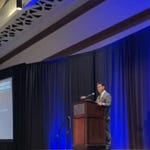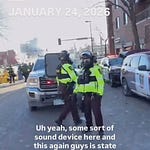By Nick Valencia | October 12, 2025
LOS ANGELES— When reports surfaced that federal immigration agents had been using Dodger Stadium’s parking lot as a staging area during this summer’s ICE raids in Los Angeles, the backlash came fast. For generations, the Dodgers have been more than a baseball team in this city — they’ve been a symbol of belonging for working-class Latino families, the soundtrack to backyard carne asadas, the team that carried hope west from Brooklyn to Chavez Ravine.
So when photos and social media posts appeared to show federal vehicles near the stadium, it hit differently. In East L.A., Boyle Heights, and Highland Park, fans called it a betrayal. Our team, the thinking went, shouldn’t be anywhere near the machinery of deportation.
The Dodgers issued a statement denying ICE had access to their property, insisting they had “terminated any arrangements” that allowed federal use of the parking lot. But the Department of Homeland Security fired back, saying there was “no truth” to the team’s statement. The result was a public-relations standoff that left many fans — especially Chicano and immigrant supporters — disillusioned.
The Dodgers principal owner Mark Walter sits at the top of an empire that intersects with the very machinery driving deportations. His firm, Guggenheim Partners, holds investments in The GEO Group, one of the country’s largest private prison operators under contract with ICE. Another of his ventures, TWG Global, has collaborated with Palantir Technologies, the company behind ImmigrationOS—a surveillance tool built for ICE and funded with a $39 million federal contract.
Facing calls for a boycott and a torrent of criticism online, the Dodgers sought to make amends. In late June, the team pledged $1 million to assist 1,000 Latino families affected by immigration enforcement actions in Southern California. The California Community Foundation (CCF) was named the nonprofit partner responsible for distributing the aid, and a press conference was held at City Hall announcing that payments would be delivered by the end of August.
For a moment, it seemed like a good-faith gesture — a chance for the organization to show that its moral compass still pointed toward the community that built its fanbase.
But months later, there’s still no evidence that the money ever reached those families.
A Promise Without Proof
This month, Nick Valencia News reached out repeatedly to both the Dodgers and the California Community Foundation requesting documentation or verification that the $1 million was distributed as promised. Neither organization provided proof.
CCF, a 501(c)(3) nonprofit, is required by law to file annual Form 990 reports detailing major grants and distributions. But even if those donations were processed, they wouldn’t appear in public filings until 2026, meaning there is currently no transparent record of whether the money was ever spent.
For fans who watched their team claim solidarity with the very people now living in fear of deportation, that lack of transparency stings. What began as a pledge of compassion has started to look like another episode of pledgewashing — the modern phenomenon of institutions offering symbolic relief to deflect accountability.
Why It Matters
This isn’t about a PR mistake. It’s about trust — between a city and its most beloved franchise.
For decades, Mexican-American families have poured their paychecks, pride, and identity into the Dodgers. Many of those same families now feel they were used for optics, their pain repackaged into a talking point.
The irony runs deep. A franchise whose ballpark sits on land once home to hundreds of displaced Mexican-American families — the descendants of whom remain some of the team’s most loyal fans — now stands accused of breaking faith again, not with bulldozers this time, but with empty promises.
If the Dodgers truly donated $1 million, where did it go? Who received it? Who verified it? The answers shouldn’t be hard to find.
Until there’s proof, this story isn’t about generosity. It’s about accountability.
If You Know These Families — Reach Out
In full disclosure, I’m a lifelong Dodgers fan. I want to believe the organization did what it said it would. But journalism requires proof, not belief.
If you are one of the 1,000 families the Dodgers pledged to help — or you know someone who was supposed to receive that support — please contact us at Nick Valencia News (https://nickvalencianews.com).
Because the truth is simple: a promise only matters when it’s kept.











